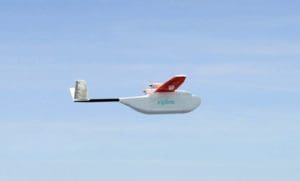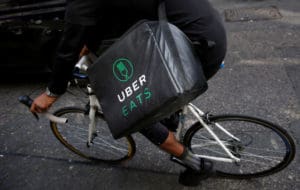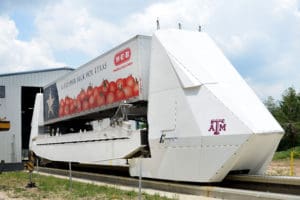 Bob Dylan has won the 2016 Nobel Prize for Literature. This recognition has caused quite a stir, with many people weighing in on Dylan’s merits as a poet. The funny thing is, none of it really matters to Dylan. In fact, it took a full five days before the artist even acknowledged the award – turns out he wasn’t answering phone calls or emails, and the Nobel committee had no idea if he would even turn up to the award ceremony. And instead of making a big deal about it, he simply addressed the win on his Facebook page, and his website now contains the line “winner of the Nobel prize in literature” in reference to the release of a new book of his lyrics (although he has since removed the line). It’s probably because the man has been very busy with his tour, including a double weekend gig at Desert Trip in Indio, CA with Roger Waters, Paul McCartney, Neil Young, The Who, and the Rolling Stones. Talk about a star studded line-up.
Bob Dylan has won the 2016 Nobel Prize for Literature. This recognition has caused quite a stir, with many people weighing in on Dylan’s merits as a poet. The funny thing is, none of it really matters to Dylan. In fact, it took a full five days before the artist even acknowledged the award – turns out he wasn’t answering phone calls or emails, and the Nobel committee had no idea if he would even turn up to the award ceremony. And instead of making a big deal about it, he simply addressed the win on his Facebook page, and his website now contains the line “winner of the Nobel prize in literature” in reference to the release of a new book of his lyrics (although he has since removed the line). It’s probably because the man has been very busy with his tour, including a double weekend gig at Desert Trip in Indio, CA with Roger Waters, Paul McCartney, Neil Young, The Who, and the Rolling Stones. Talk about a star studded line-up.
And now, on to the news.
- World’s first commercial drone is flying
- Walmart and IBM collaborating for food safety
- Delivery workers are uniting
- US lifts limits on Cuban trade
- Texas A&M unveils truck-less, electric freight system
- Amazon develops drone of the future
 Zipline, a US robotics drone company has the first commercial drone delivery service up and running. The company is delivering blood by drones in Rwanda. The program has Zipline dropping blood parcels via parachute to remote health centers. Health workers can request a blood drop via text message, and it arrives around 30 minutes later. The big news here comes down to infrastructure, where even a short drive can take hours due to road conditions. For now, Zipline will make between 50 and 150 deliveries per day to 21 clinics in the western half of the country. And while the Rwanda service will just deliver blood for now, there are plans to expand into other medical areas, such as vaccines.
Zipline, a US robotics drone company has the first commercial drone delivery service up and running. The company is delivering blood by drones in Rwanda. The program has Zipline dropping blood parcels via parachute to remote health centers. Health workers can request a blood drop via text message, and it arrives around 30 minutes later. The big news here comes down to infrastructure, where even a short drive can take hours due to road conditions. For now, Zipline will make between 50 and 150 deliveries per day to 21 clinics in the western half of the country. And while the Rwanda service will just deliver blood for now, there are plans to expand into other medical areas, such as vaccines.
 Walmart is announcing two blockchain supply chain food safety projects, working with IBM. Blockchain is the technology powering Bitcoin. The project is designed to provide the retailer with a way to record a list of transactions indicating how meat has flowed through a commercial network, from producers to processors to distributors to grocers – and finally, to consumers. With more and more consumers demanding visibility into the sourcing of their food, this move is not overly surprising. The second project is international in scope and will trace mangoes from Brazil producers to U.S consumers.
Walmart is announcing two blockchain supply chain food safety projects, working with IBM. Blockchain is the technology powering Bitcoin. The project is designed to provide the retailer with a way to record a list of transactions indicating how meat has flowed through a commercial network, from producers to processors to distributors to grocers – and finally, to consumers. With more and more consumers demanding visibility into the sourcing of their food, this move is not overly surprising. The second project is international in scope and will trace mangoes from Brazil producers to U.S consumers.
 Delivery workers unite! At least that is the rallying cry in New York, where on-demand messengers are forming an alliance. Earlier this week, a group of bike messengers launched the New York Messengers Alliance, a first-of-its-kind organization for couriers who work for on-demand apps like Instacart, Postmates, and Uber. This alliance is not a formal labor union, but it wants to build a solidarity among the people who work for one or more of these delivery companies. Bike messengers are looking for basic benefits from the companies they make deliveries for – namely a demand for company-provided safety gear like helmets, and workers’ compensation when they’re injured on the job.
Delivery workers unite! At least that is the rallying cry in New York, where on-demand messengers are forming an alliance. Earlier this week, a group of bike messengers launched the New York Messengers Alliance, a first-of-its-kind organization for couriers who work for on-demand apps like Instacart, Postmates, and Uber. This alliance is not a formal labor union, but it wants to build a solidarity among the people who work for one or more of these delivery companies. Bike messengers are looking for basic benefits from the companies they make deliveries for – namely a demand for company-provided safety gear like helmets, and workers’ compensation when they’re injured on the job.
 President Obama on Friday moved to cement his administration’s historic opening with Cuba by issuing a sweeping directive that will last beyond his presidency. Namely, he is lifting the trade embargo that has been in place for decades. Starting Monday, Americans traveling abroad can buy an unlimited number of Cuban cigars and rum wherever in the world they are sold and bring them back to the US. The cigars and rum must be for personal consumption only. According to USA Today, new regulations by the U.S. Departments of Commerce and Treasury will make it easier for American pharmaceutical companies to import cancer drugs manufactured in Cuba, and for agricultural companies to sell products to farmers in the Caribbean nation. The new laws will also permit Cubans to purchase American-made goods via the internet.
President Obama on Friday moved to cement his administration’s historic opening with Cuba by issuing a sweeping directive that will last beyond his presidency. Namely, he is lifting the trade embargo that has been in place for decades. Starting Monday, Americans traveling abroad can buy an unlimited number of Cuban cigars and rum wherever in the world they are sold and bring them back to the US. The cigars and rum must be for personal consumption only. According to USA Today, new regulations by the U.S. Departments of Commerce and Treasury will make it easier for American pharmaceutical companies to import cancer drugs manufactured in Cuba, and for agricultural companies to sell products to farmers in the Caribbean nation. The new laws will also permit Cubans to purchase American-made goods via the internet.
 Texas A&M University last month unveiled a plan 18 years in the making for a truck-less freight movement system. University officials and Texas Gov. Greg Abbott introduced the Freight Shuttle System, an electric, elevated railway network that transports loaded trailers without the tractors from one distribution point to another. According to Texas A&M, the transporter can move 70,000 pounds of freight at 60 miles per hour up to a distance of 500 miles using two-thirds less energy than a conventional diesel truck. This could potentially be huge news for the transportation industry.
Texas A&M University last month unveiled a plan 18 years in the making for a truck-less freight movement system. University officials and Texas Gov. Greg Abbott introduced the Freight Shuttle System, an electric, elevated railway network that transports loaded trailers without the tractors from one distribution point to another. According to Texas A&M, the transporter can move 70,000 pounds of freight at 60 miles per hour up to a distance of 500 miles using two-thirds less energy than a conventional diesel truck. This could potentially be huge news for the transportation industry.
 And finally, Amazon is at it again with drones. On Tuesday, the retail giant was granted a patent for a miniature, voice-controlled “unmanned aerial vehicle assistant” to be used by everyone from officers making traffic stops to shoppers just trying to figure out where they parked their cars. While the patent’s diagrams focus on law enforcement applications, Amazon believes the assistant could be used “for many other purposes,” including clearing buildings for military forces and even helping people decide if it’s worth waiting in line. It is very interesting to see Amazon’s view of the drone changing to meet very different business needs.
And finally, Amazon is at it again with drones. On Tuesday, the retail giant was granted a patent for a miniature, voice-controlled “unmanned aerial vehicle assistant” to be used by everyone from officers making traffic stops to shoppers just trying to figure out where they parked their cars. While the patent’s diagrams focus on law enforcement applications, Amazon believes the assistant could be used “for many other purposes,” including clearing buildings for military forces and even helping people decide if it’s worth waiting in line. It is very interesting to see Amazon’s view of the drone changing to meet very different business needs.
That’s all for this week. Enjoy the weekend and the song of the week, Bob Dylan’s Subterranean Homesick Blues.

















Leave a Reply